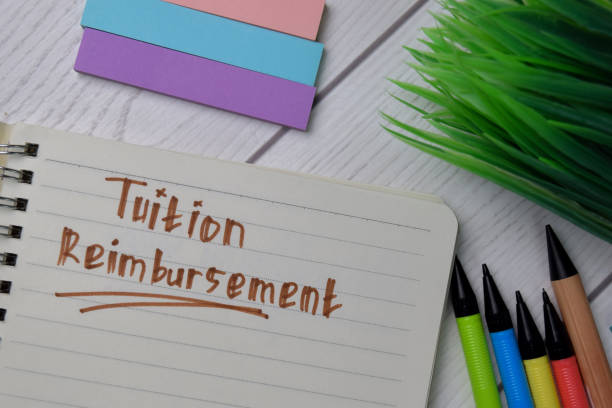All 50 states require real estate continuing education courses for renewal of licenses. There are different requirements for each state. Some states, like Illinois and Kentucky, require only six credit hours of continuing education, while others, such as California and Wyoming, require as many as 45 credit hours. Washington, Florida, and many other states have different requirements for first-time renewals of real estate licenses over later renewals. Before renewing their licenses in any state, real estate brokers must also complete continuing education courses.
What is Real Estate Continuing Education?
Real estate continuing education is often referred to as “real estate CE” in realty groups. Its primary purpose is to ensure that real estate brokers and real estate agents keep track of any changes in realty laws and regulations. CE courses allow agents to strengthen their real estate knowledge, or to learn more about specific niches such as property management or real estate investing.
While most of the feedback received by agents regarding real estate CE was positive in nature, there were some negatives as well as warning signs. Here’s everything you need to know about continuing education in real estate.
The Good Side of Real Estate CE
Most real estate agents and real estate brokers are in agreement that taking real estate continuing education courses were beneficial to their careers.
You Will Learn New Things
The best thing about real estate is the fact that you can quickly get your license by taking a short pre-license course. You don’t need a four-year or two-year degree to start your real estate career!! However, this advantage has a downside: your pre-license courses won’t cover all you need as a realty professional. CE will allow you to keep up-to-date with industry changes and also fill in any gaps in your real estate knowledge.

It Will Help You Become a Better Real Estate Agent
You will naturally have strengths and weaknesses as a real estate agent. Complex subjects like contracts, real property law, and finance don’t come easily to everyone.
You Could Be Eligible to Get the Cost of Courses Reimbursed
Although it isn’t a guarantee, it might be possible to have the cost of continuing your education in real estate reimbursed. There are some real estate agents who get assistance from an association. These expenses are not something to worry about if you don’t have the funds. Most state-approved continuing education courses can be affordably priced. They are also tax-deductible as necessary professional expenses.

Online Courses Make Real Estate CE Attainable For Everyone
For decades, continuing education required driving to a school of real estate and sitting through a physical class. This cut into real estate sales hours. Online real estate courses were made possible, so agents and brokers could now fit their CE courses around work. Today’s online real estate schools have taken this concept to the next level by creating CE courses for smartphones and tablets. You can now work towards your CE requirement while waiting in line at a coffee shop, or when a client arrives late for a show!
The Bad Side of Real Estate CE
Unfortunately, nothing is perfect. Here are some of the negative aspects to continuing education in real estate.
There May Not Always Be Exciting Courses Available
Your CE courses will likely include updates to industry regulations. However, this is not the kind of groundbreaking content that real estate agents want to learn. These more interesting topics can be covered by professional training courses. While courses on how you can get more appointments or how you can generate leads using geo-farming may not be eligible for state CE requirements, they will give your real estate business new ideas.

Real Estate CE Will Still Cut Into Your Work Schedule
Real estate continuing education is important but not always urgent. Brokers and real estate agents have a lot on their plates. There are many urgent tasks that you must address, including marketing, listing, appointments, showings, closings, and navigating escrow. Real estate continuing education can be important, but it is likely to get bumped for urgent tasks if needed. Because of this, most real estate agents prefer CE courses that can be completed in a timely manner. However, today’s technology allows you to lose less work time by taking online courses!
The Ugly Side of Real Estate CE
Many Agents Procrastinate on Taking Their CE Courses
Real estate agents have many tasks. It is not surprising that a lot of real estate agents don’t remember to renew their CE requirements! It’s not a good idea to wait until the last minute. You won’t be able to use your CE requirement to improve your real estate skills or learn new ones. It’s just a matter of following the prescribed steps to pass the course and renew your license.

Forgetting to Take Your CE Courses
Remember that real estate continuing education is essential to renew your real estate license when it expires. You could lose your license and be ineligible for selling homes if you fail to complete the requirements outlined by the state. To reinstate your license, you will be required to pay additional fees which can start at $200. You can set up a reminder on your calendar for real estate CE courses. You might set it up for six months before your license expires so that you have enough time to complete your continuing education requirements in real estate.
Picking Courses Based on the Wrong Things
Although most agents take continuing education very seriously, many agents see it simply as a necessity to get through the process in a cheap, fast, or easy manner. There is nothing wrong with efficiency and being cost-effective. However, if these are your primary criteria, you may miss out on great opportunities to learn.

Conclusion
Real estate continuing education is crucial for brokers and agents to be able to renew their knowledge and stay current on regulatory changes in the real estate industry. These courses are valued by agents and help them, as well as their colleagues, to continue growing and learning. Agents are often extremely busy. It’s essential to plan ahead and take relevant courses. You should also choose an online school that allows you to learn wherever you are. Register for your real estate continuing education courses today to get a head start on your renewal process!!
